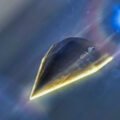The FDA has approved Elon Musk’s Neuralink to implant its experimental brain chip technology in a second individual, following issues that arose with its first patient.
The company recently addressed the complications in a posting on Neuralink’s blog, noting that several threads connected to the brain of patient Noland Arbaugh had retracted, causing a decrease in effective electrodes that reduced the amount of data that could be obtained.
The company says it “modified the recording algorithm to be more sensitive to neural population signals” in response to this, along with improving the techniques the company used to translate signals received from the patient’s brain into cursor movements and enhancing the user interface overall.
The company said its refinements greatly improved performance and “produced a rapid and sustained improvement in [bits-per-second]” which they say “has now superseded Noland’s initial performance.”
Neuralink’s disclosure about its technology shifting out of position is an issue the company has reportedly been aware of for years. The Neuralink device, about the size of a large coin, is surgically implanted into patients’ skulls and features microscopic wires capable of detecting neuron activity and transmitting a wireless signal.
Earlier this week, The Wall Street Journal reported that three people with knowledge of the situation indicated that there was foreknowledge about risks that the wires could retract. Despite this, Neuralink had previously determined that the risk was not significant enough to warrant a redesign shortly after U.S. regulators approved the first Neuralink implant in the brain in 2019.
Arbaugh made history as the first human patient to receive the Neuralink device. The 30-year-old quadriplegic volunteered to be the first recipient of Elon Musk’s Neuralink brain implant chip, known as “The Link,” and shared the transformative impact this pioneering technology has had on his life on X.
Twitter banned me because they thought I was a bot, @X and @elonmusk reinstated me because I am.
— Noland Arbaugh (@ModdedQuad) March 22, 2024
Following a diving accident that paralyzed him below the shoulders, Arbaugh underwent the chip implant procedure in January 2023. Since becoming Neuralink’s inaugural patient, the implant has granted Arbaugh “cyborg” abilities, enabling him to control a range of technologies, such as playing video games like Mario Kart and Chess solely with his mind.
“The surgery was super easy,” Arbaugh said in a video posted on X, stated Arbaugh in March of this year.
According to Monday’s WSJ report, which cited a person familiar with the company and a document they reviewed, the company plans to address the issue by implanting some of the device’s wires deeper into the brain.
This June, Neuralink plans to implant its device in the second patient with a total of 10 people by the end of the year as part of the clinical trials. To date, over 1,000 quadriplegics have registered to take part in the first brain chip implant surgery.
Neuralink says in the near future they intend to submit applications to conduct the same clinical trials in Canada and Britain, countries where the policies of health regulators differ from U.S. FDA health regulations and will likely be harder to pass.
Chrissy Newton is a PR professional and founder of VOCAB Communications. She hosts the Rebelliously Curious podcast, which can be found on The Debrief’s YouTube Channel. Follow her on X: @ChrissyNewton and at chrissynewton.com.

